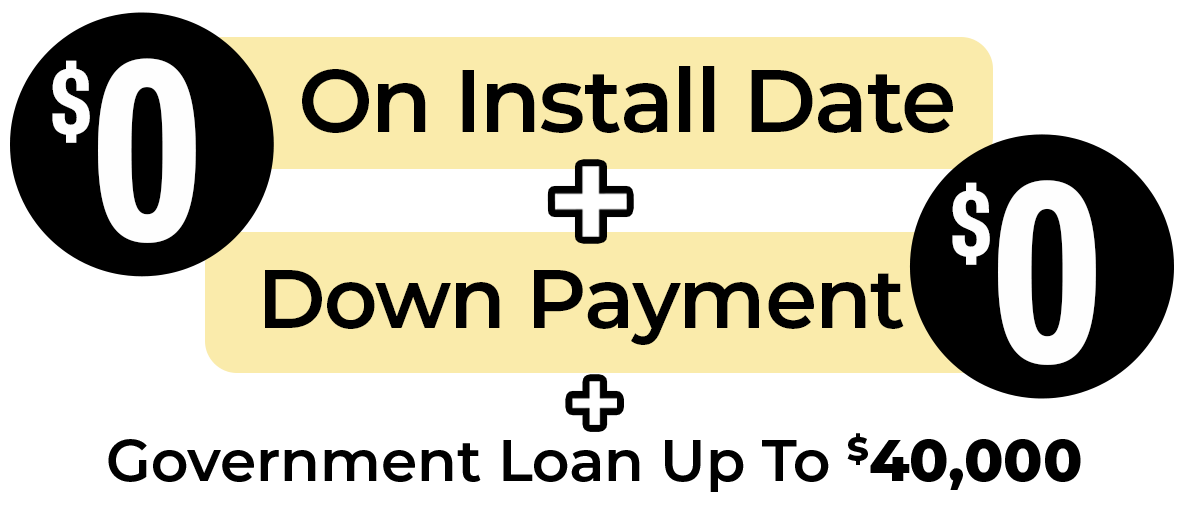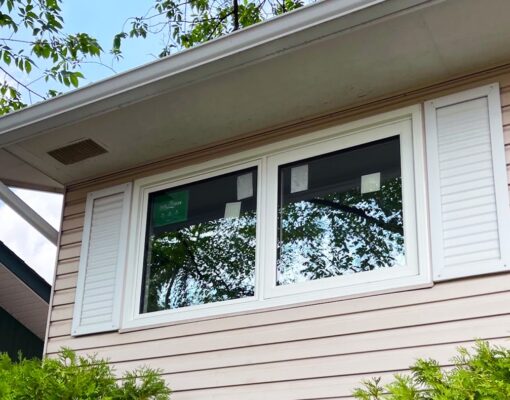

Canadian Government Grants for Window Replacement in 2025
Jan 20, 2025
5 min read
2549
With promises being made by each candidate vying to be the next Canadian Prime Minister, there is a consistent area of concern—climate change.
As the election draws near, homeowners should take note of the agendas two of the leading political parties have announced on home renovation grants and rebates. To combat the negative effects of global warming—rapidly melting glaciers and snowpack, higher sea levels, and extreme weather events—it’s more important than ever that Canadians do their part to reduce their carbon footprint.
Luckily, no matter who wins the top job, there will be opportunities for homeowners to receive incentive dollars for environmentally friendly improvements and retrofits for replacement of windows and doors with more efficient units.
Experts at Ecoline Windows indicate that new 2020 Energy Star and NAFS 11 program standards will soon be enacted per government requirements to improve energy efficiency. They will also be required to qualify for local rebates and low-cost home improvement loans.

Shopping for New Energy-Efficient Windows?
Government Rebate for Windows: Which Models Qualify?
To achieve the maximum benefits from replacement windows, double and triple-pane windows should be included. Glass panes are the most vulnerable to heat loss and gain. As severe weather events increase, it’s important for homeowners to protect their homes with glass packages that increase efficiency.
Low-emissive (LoE) glass coatings can be added for year-round protection. More interior heat is retained during cold winter months while harmful UV rays and solar heat gain are filtered out during hot summer months.
For an added level of protection, Argon and Krypton gases fill the spaces between glass panes to reduce heat loss and condensation. These gases conduct 50-per cent less heat than regular air so are an effective way to save energy, money, and the planet.
Additional rebates are pledged for projects like:
- Installation of high-quality insulation in attics and walls
- Investment in high-efficiency furnaces and water heaters
- Upgrades to HVAC systems
- Solar panel or solar array installations
Government Grants for Windows: What’s in For You?
Specific programs will be dependent on which party wins the election and vary between municipalities. Some of the programs Canadian homeowners will be eligible for include a 20-per cent refundable credit on their income tax. Green improvements made between $1,000 and $20,000 would qualify with annual savings up to $3,800.
- Interest-free loans up to $40,000 would be available for upgrades to energy-efficient furnaces, replacement windows with Lo-E coatings or Krypton gas fills, or other retrofits that save energy or improve resiliency against the risk of flooding or wildfires.
- Homeowners and landlords would also be eligible for low-cost loans when adding rooftop solar panels, basement flood-proofing or insulation packages. Funding would be provided through an insured mortgage, direct bank loan or through savings on monthly utility bills.
- Cash incentives from $250 to $750 would be provided for a reduction in energy waste.
- Free energy audits would also be offered to assist millions of homeowners in finding ways to improve efficiency and save money.
- Window replacement government rebates up to $5,000 would be given to Canadians who buy new zero-emissions certified homes.

Shopping for New Energy-Efficient Windows?
Commitment and Support
Regardless of what policies prevail, all Canadians (and the planet) will benefit from the commitment and support of leadership in fighting climate change. With millions of dollars dedicated to encouraging every homeowner to do their part through efficiency measures, there is a chance to reduce greenhouse gases and slow global warming.
Until then, a low-cost national flood insurance program is being proposed to protect homeowners in high-risk flood zones. Increased claims related to severe weather have displaced thousands of Canadian families in recent years due to the lack of adequate insurance coverage.
A government initiative to complete flood maps in all provinces and territories is proposed to prevent home construction in high-risk areas.
For those affected by a natural disaster, candidates pledge programs designed to assist people whose jobs and livelihoods are impacted with an Employment Insurance Disaster Assistance Benefit.
The Promise for Tomorrow
One thing is clear, whoever wins the impending election in Canada will need to be proactive in their efforts to enact a climate change action plan quickly.
To encourage Canadian homeowners to invest in improvements to big-ticket items like replacement windows and doors, HVAC systems, or the installation of solar panels, home renovation grants and rebates must significantly offset the costs. Each candidate is aware of how important this issue is to all Canadians and will strive to enact programs that will create change for good and a promise for tomorrow.
Featured illustration by Liz Sullivan.
Article by Maclean’s: 2019 federal election platform guide: Where the parties stand on everything
1750 Coast Meridian Rd #102,
Port Coquitlam, BC V3C 6R8
100, 17866 106A Avenue,
Edmonton, AB, Canada,
T5S 1V3
3307 Dunmore Rd SE #12,
Medicine Hat, AB,
Canada, T1B 3R2
2081 Merivale Rd #201, Ottawa, ON, Canada, K2G 1G9
by appointment only
109 Ilsley Ave Unit #3, Dartmouth,
NS, Canada, B3B 1S8








